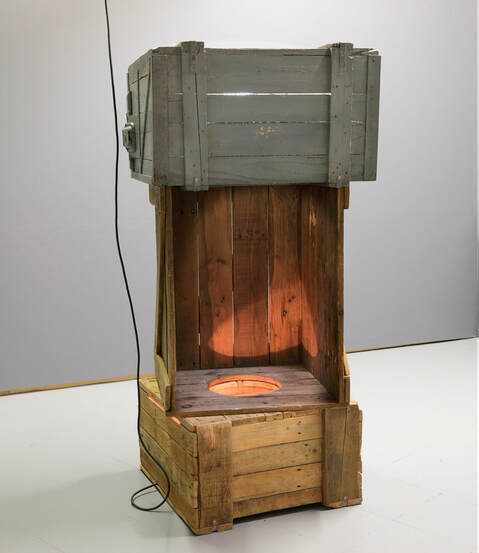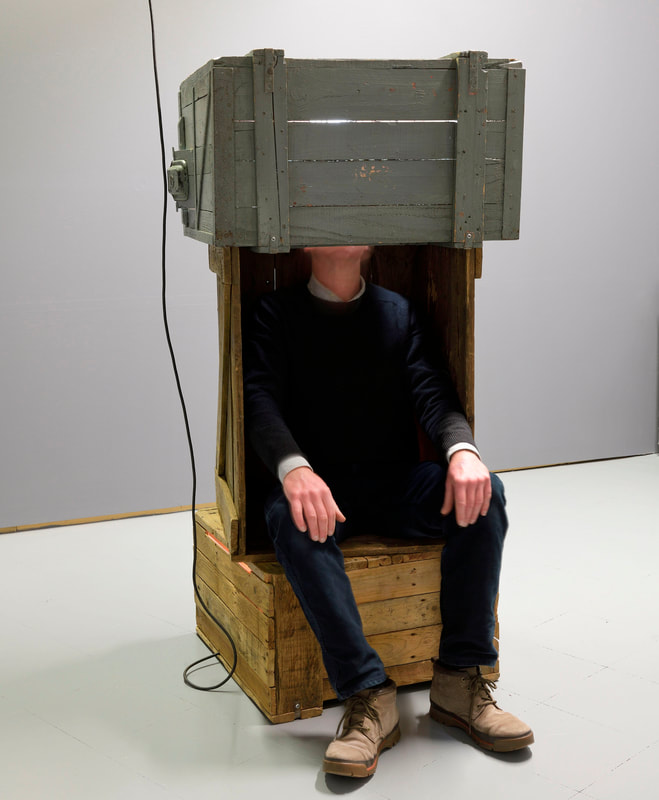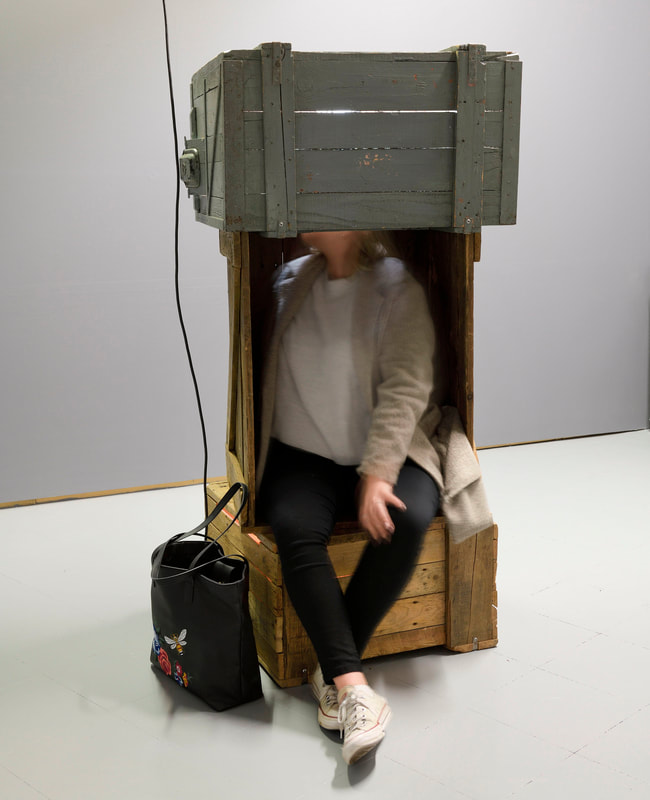-
in gallery
- Transit Transition >
- Remnants Of Utopia >
-
Antarctica
>
- Project Outline
- Antarctica Essay
- Reviews
- Sledge
- Toy Sledge
- Airfix Antarctic Aeroplane Hoover
- Eating Penguins
- The Rime Of The Ancient Mariner
- Toy Snowmobile
- Rat Box, Bird Island
- Rejection Letters
- The Last Roll Of Kodachrome In The World
- John Deere Gator And Specimen
- There Are No More Dogs In Antarctica
- Furthest South- J C B
- Captain Scotts Bookshelf
- Antarctic Toy Portraits
-
Landscape, Seascape, Skyscape , Escape
>
-
Offer Must End Soon
>
- Essay Jess Twyman
- Reviews
- Offer Must End Soon
- Buy My Painting!
- "Buy My Painting!" For the hard of hearing.
- "Don't Make Me Take It All Back Home With Me!"
- How We Won The War
- "Stop me and buy one!"
- 'The Cornfield'... free gift inside
- "Catalogue!"
- The Contemporary Art Scene
- Camera Crash
- "Untitled" hanging itself
- Buy My Fucking Painting!
- Absolut Ship !
- Executive Toy!
- Art Stunt Suicide Disaster
- Roll up, Roll up. Get your Art here!
- Big Country >
- All at Sea
- & Model >
- Give Me The Money
- Music and domestic appliances >
- ...on the wall...in boxes >
- Sweet Jars, glass cases on books >
- On Stage
-
Outside gallery
- Auspicious Phoenix Recycling Palace
- Covid lockdown with Boris >
- Goat Train
- washed up Car - go >
- Vanishing Point >
- Badgast Residency >
- Selfie Slot Car Racing >
- Coventry Transport Museum Residency >
- Cheap Cheap >
- A Portrait of Casper DeBoer
- Cranes
- Hessle Road Residency >
- Reisbureau Mareado >
- Windmills >
- Performance Sculptures >
- Accessible Collectible
-
publications
- Solo projects >
-
Group Projects
>
- oceans
- Photography, Curation, Criticism:
- Art in Oisterwijk 2022
- Talk to me
- & Model
- Middlesbrough Art Weekender
- Polar Record
- Translating the Street
- 1st Sino/british Cont. Art, Yentai
- Extending Ecocriticism
- The Dream Cafe
- Performance, Transport And Mobility
- shipwreck in art and literature
- Inbetween PS1, New York and Shanghai
- Odd Coupling
- Landscapes of Exploration
- IT! The Worst Magazine Ever : Poland
- Flip Shift Show Switch
- Baudrillard Now
- The Juddykes
- Dr Roberts Magic Bus
- Continental Breakfast
- Lat (living Apart Together)
- North. Amsterdam 2004
- Westwijk, Vlaardingen, De Strip
- Da Da Da Strategies Against Marketecture
- Reisburo Mareado (The Travel Brochure)
- Catalogus Mareado
- Kunst Over De Grens
- This Flat Earth
- The Uses of an Artist
- Kettles Yard Open 97
- Royal College Of Art Centenary Year
- Millennium Encyclopedia
- Press
- About / contact
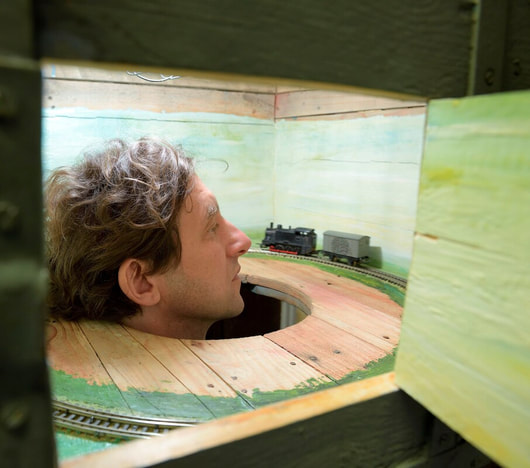 Photo Doug Atfield
Photo Doug Atfield
The work was installed in 'Remnants of Utopia' accompanied by the text below.
In 1952, while Stalin was still ruler of the USSR, a Polish friend of my father went back to see his family. He promptly disappeared, never to be seen or heard of again. Much later, in the 1970’s, another friend– Mrs Smylkin- also decided to return. She had recently become widowed and now, all alone in England, thought she would be better off back in Poland. Before she left, she gave us her cooker – and her Polish record collection. I was never taught to speak Polish by my father, so I couldn’t understand any of the lyrics. Despite this major impediment, these state sponsored recordings of traditional Polish folk tunes were a rare exposure to my father’s culture. More importantly, a year after she left, Mrs Smylkin also sent us a Christmas card. Posted to us from her new home in Poland it was a good indication she hadn’t been murdered by the secret police.
As part of my privileged upbringing, I also had a generous collection of toys. Once my father even built a shed in the garden for my train set. Like most children’s train sets it went around in a circle, now I realise how much at odds this was with the relationship to trains he had as a child. For him they were very real, went in a straight line and never came home again.
In 1952, while Stalin was still ruler of the USSR, a Polish friend of my father went back to see his family. He promptly disappeared, never to be seen or heard of again. Much later, in the 1970’s, another friend– Mrs Smylkin- also decided to return. She had recently become widowed and now, all alone in England, thought she would be better off back in Poland. Before she left, she gave us her cooker – and her Polish record collection. I was never taught to speak Polish by my father, so I couldn’t understand any of the lyrics. Despite this major impediment, these state sponsored recordings of traditional Polish folk tunes were a rare exposure to my father’s culture. More importantly, a year after she left, Mrs Smylkin also sent us a Christmas card. Posted to us from her new home in Poland it was a good indication she hadn’t been murdered by the secret police.
As part of my privileged upbringing, I also had a generous collection of toys. Once my father even built a shed in the garden for my train set. Like most children’s train sets it went around in a circle, now I realise how much at odds this was with the relationship to trains he had as a child. For him they were very real, went in a straight line and never came home again.
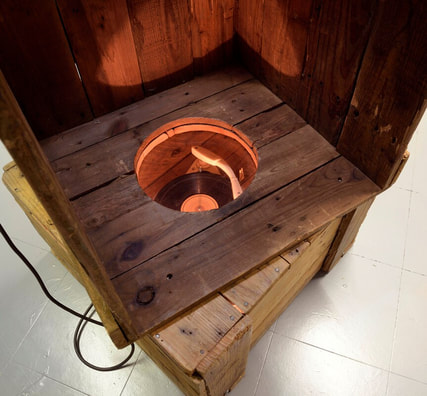 Photo Doug Atfield
Photo Doug Atfield
A couple of years later my father decided we would make the journey ourselves and see his relatives again for the first time in 40 years. It was during the summer holidays and I was 12 years old. Many of my relatives were farmers; so much of our time was spent staying with them in the countryside. As well as meeting an extended family I had never seen before, I also found myself exposed to the culture of a nation that, although alien to me, was also ethnically part of me. Sadly, as a typical, pampered western European child, my abiding cultural memory was the shock at realising that not everyone in the world had a lavatory you could flush.
In 1990 I decided to return to Poland. I was an art student at the time and had a sculpture tutor who, like me, was half Polish. She wanted to send me on a research trip to stay with some art students in Warsaw. The cheapest way to get there at the time was by train. I told my father that I was going to go to Poland and went to visit him the evening before I set off on the journey. He wasn’t impressed and even told me he didn’t want me to go and ‘show him up’ by embarrassing myself over there. When he finally realised he couldn’t stop me from going, he decided he had better teach me some Polish. We had limited time, so the only two Polish words I ever learned from him were – “Przepraszam” – which means “Excuse me” and “Pociag” the Polish word for “Train”.
In 1990 I decided to return to Poland. I was an art student at the time and had a sculpture tutor who, like me, was half Polish. She wanted to send me on a research trip to stay with some art students in Warsaw. The cheapest way to get there at the time was by train. I told my father that I was going to go to Poland and went to visit him the evening before I set off on the journey. He wasn’t impressed and even told me he didn’t want me to go and ‘show him up’ by embarrassing myself over there. When he finally realised he couldn’t stop me from going, he decided he had better teach me some Polish. We had limited time, so the only two Polish words I ever learned from him were – “Przepraszam” – which means “Excuse me” and “Pociag” the Polish word for “Train”.
'Siberia' was developed in 2004-5 directly from two earlier works- 'Europa- Hoek Van Holland to Vladivostok'. and 'The box you stick your head into'. Designed with transportation in mind, as with 'Europa- Hoek Van Holland to Vladivostok, the boxes that make up 'Siberia' store one inside the other. From 2009 to 2012 it was used in a theatre show collaboration with '30 Bird productions' called 'Poland 3 Iran 2'. Travelling from show to show 'Siberia' inevitably spent much of this time in transit, albeit in the back of a car not on a train.
